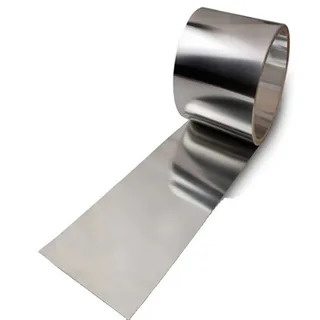
All About Nickel Shim Stock
Nickel shim stock, nickel shim foil, or nickel shim sheet is a versatile material with diverse applications in various industries. Its unique properties make it particularly useful in creating gaskets, shims, and washers for electrical and electronic applications. In this blog post, we will explore what nickel shim stock is, its properties, and the applications for which it is commonly used.
What is Nickel Shim Stock?
Nickel shim stock is a thin, metallic sheet made of nickel, an abundant metallic element resistant to tarnishing and corrosion. Its thickness typically ranges from 0.0015 inches to 0.125 inches, and it comes in rolls or sheets. The material is versatile, and its thickness can be adjusted to the desired level depending on the application.
Properties of Nickel Shim Stock
Nickel shim stock has unique mechanical and physical properties, making it perfect for various applications. It is flexible and malleable, meaning it can be easily cut into different shapes and sizes without cracking or breaking. Nickel shim stock is also highly corrosion-resistant, making it perfect for durable applications. It has a high thermal conductivity and can withstand high temperatures, making it perfect for electronic components and electrical enclosures.
Applications of Nickel Shim Stock
Nickel shim stock finds applications in various fields, including aerospace, automotive, and electronics. In electronic applications, nickel shim stock is commonly used to create heat sink shims, gaskets, and EMI/RFI shielding materials. It is also used in the manufacture of battery components and capacitors. Nickel shim stock is also used in the automotive industry to produce sealing under-tolerance gaps. In the aerospace industry, it is commonly used to manufacture aircraft engines, hydraulic systems, and bearings.
Advantages of Nickel Shim Stock
Nickel shim stock has several advantages over other materials. Its high thermal conductivity makes it perfect for use in electronic components that generate a lot of heat. Its malleability means it can be easily cut into various shapes and sizes, making it versatile and adaptable to different applications. Additionally, nickel shim stock is highly resistant to corrosion, meaning it can be used in harsh environments where other materials would fail.
Disadvantages of Nickel Shim Stock
While nickel shim stock has several advantages, it also has some drawbacks. Nickel is a relatively expensive material compared to other metallic elements and can lead to higher production costs. Also, nickel is not environmentally friendly, and its production can have significant environmental impacts.
Conclusion:
In conclusion, nickel shim stock is a versatile material with unique mechanical and physical properties that make it perfect for various applications. Its flexibility, thermal conductivity, and corrosion resistance make it ideal for electronic and electrical applications, aerospace, and automotive industries. While it has several advantages, it also has its drawbacks, and it is essential to consider these when choosing nickel shim stock. Overall, its usefulness in many fields underscores the growing significance of nickel shim stock and its importance in modern-day manufacturing.


